The World Over: A Profile of Rolf Potts
Getting there may be half the fun, but for Rolf Potts, author of Marco Polo Didn’t Go There, the art of traveling—and travel writing—raises more important questions than how to go from point A to point B.
Jump to navigation Skip to content
Articles from Poet & Writers Magazine include material from the print edition plus exclusive online-only material.
Getting there may be half the fun, but for Rolf Potts, author of Marco Polo Didn’t Go There, the art of traveling—and travel writing—raises more important questions than how to go from point A to point B.
With so many good books being published every month, some literary titles worth exploring can get lost in the stacks. Page One offers the first lines of a dozen recently released books, including Robyn Schiff's Revolver and Adam Braver's November 22, 1963, as the starting point for a closer look at these new and noteworthy titles.
The brief, contentious, and ultimately fruitless relationship between poet Stacey Lynn Brown and the editors of Cider Press, points to an essential question that pops up often in literary publishing: Whose opinion—author's or publisher's—should matter most when it comes to finalizing the product that enters the marketplace as a book?
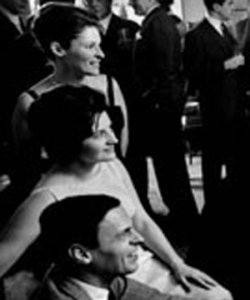
The story of the Paris Review cofounder Harold Louis "Doc" Humes is at once sad, fascinating, funny, and tragic. Doc, a new documentary by his daughter Immy Humes, which, to use her father's words, "puts a frame around the wreckage" of the story, will premiere on the PBS series Independent Lens on December 9.
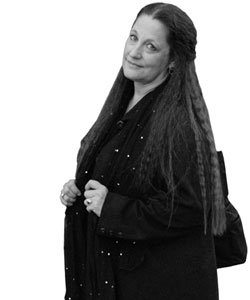
Jayne Anne Phillips, who is in her second year as program director of the new MFA program in creative writing at Rutgers University's Newark, New Jersey, speaks about the program's genesis, its connection to Newark's literary and cultural community, and finding the time to complete her new novel.
Small Press Points highlights the happenings of the small press players. This issue features City Lights Publishers, Grove Press, Grove/Atlantic, Atlantic Monthly Press, New Directions, Coffee House Press, Akashic Books, Harbor Mountain Press, Goats and Compasses Press, EM Press, and Perceval Press.
Literary MagNet chronicles the start-ups and closures, successes and failures, anniversaries and accolades, changes of editorship and special issues—in short, the news and trends—of literary magazines in America. This issue's MagNet features GUD, Night Train, Quick Fiction, the New Renaissance, AGNI, Ploughshares, Salamander, Post Road, and the Harvard Review.
One way MFA programs provide funding to students is by hiring them as teaching assistants to teach writing classes in exchange for a stipend and, often, tuition remission and health insurance. While each program defines its teaching assistantships differently, in general there are a few things you should know before applying and preparing for one.
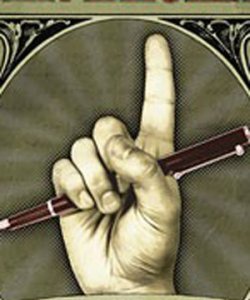
As the presidential election approaches, our national hand-wringing has ramped up and everyone is once again focused on the perennial question: What makes America America? Two recent literary anthologies show just how far this popular introspection reaches into our creative communities of writers and artists.
After a brief but torrential thunderstorm in mid-June, eight writers of poetry and prose, myself included, huddled around a picnic table crowded with three-buck beer and leaves of printed-out poems, stories, and essays in the concrete garden of a Brooklyn bar. It had been almost a year since I'd taken a seat at a table with other writers to talk about the stuff, the meat of our writing and the project at hand every time each of us settles in to confront the blank page.
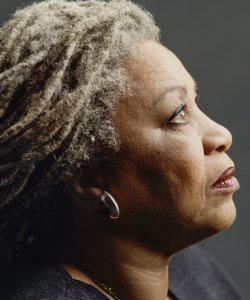
A writer doesn't work for four decades, publish ten books, and win the Nobel Prize without developing a healthy dose of skepticism. This attitude, combined with the confidence to disregard critics, has made Toni Morrison stronger than ever.
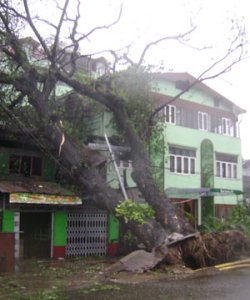
In the cyclone-ravaged country of Myanmar, where citizens face censorship and repression, contributor Stephen Morison Jr. speaks with authors who, despite the country's Orwellian police state, refuse to be intimidated and continue to write.
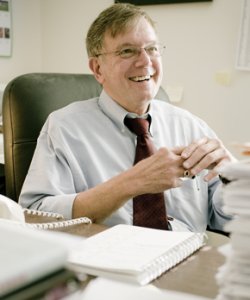
A veteran editor who has worked at publishing houses both large and small, Chuck Adams of Algonquin Books talks about what beginning writers tend to forget, the secret to selling two million copies, and the problem with MFA writing.
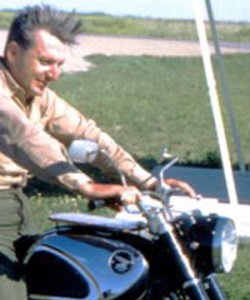
This month, to commemorate the fortieth anniversary of Robert Pirsig's legendary cross-country motorcycle trip, Knopf is publishing Zen and Now: On the Trail of Robert Pirsig and the Art of Motorcycle Maintenance by Mark Richardson, a journalist who retraced Pirsig's route, interviewed the reclusive author, and discovered the lasting value of a literary classic.
Small Press Points highlights the happenings of the small press players. This issue features Word Riot, Chiasmus Press, Future Tense Books, Fiction Collective 2, Marick Press, BOA Editions, Calamari Press, and 3rd Bed.
It's been a half century since G. P. Putnam's Sons published Lolita and brought the infamous novel to American readers three years after its explosive reception in Paris, and while the anniversary of the literary classic's stateside publication is met with a rather subdued celebration, Nabokov's masterpiece continues to incite strong reactions.
Booksellers and readers alike tend to think of novels as belonging to one of two distinct categories—literary or genre fiction, high or low culture, elitist or democratic—but more and more of America's respected literary novelists are choosing to dip from the genre pot.
The best advice for how to produce good poetry or prose has always been the most simple—just sit down and write—but perhaps sitting isn't the answer after all.
Literary MagNet chronicles the start-ups and closures, successes and failures, anniversaries and accolades, changes of editorship and special issues—in short, the news and trends—of literary magazines in America. This issue's MagNet features Literary Rejections on Display, Rejection Collection, Fence, Virginia Quarterly Review, ZYZZYVA, and Atlas.
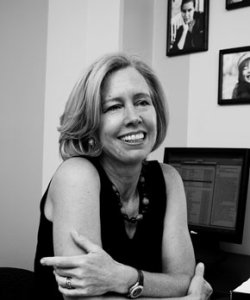
Known as a heavy-hitting agent willing to go to bat for her clients, Molly Friedrich discusses how an author should choose an agent, what she looks for in a manuscript, and what separates great agents from merely good ones.
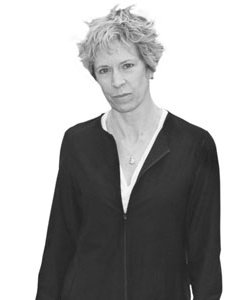
Poet Chase Twichell talks about the decision to end her ten-year run as publisher and hand over her independent press to the nation’s largest poetry publisher, Copper Canyon Press.
Page One features a sample of titles we think you'll want to explore. With this installment, we offer excerpts from Boring Boring Boring Boring Boring Boring Boring by Zach Plague and Demons in the Spring by Joe Meno.
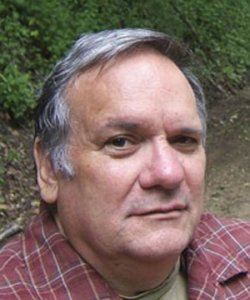
The story of David Rhodes is punctuated by early successes and devastating losses, personal demons and unlikely angels, dogged determination and blind faith, and the next chapter begins with the triumphant return of a major American novelist after a thirty-year silence.
Do you have a special place where you sit down (or stand up) to write every day? Whether it's a traditional desk surrounded by your favorite books, a little space cleared away at the kitchen table, or a slightly more exotic locale, send us a photograph of it.

To get to Wonewoc, the small town in Wisconsin where novelist David Rhodes lives with his wife, Edna, one must look for signs to Highway 80, State Road 33, County Road EE, Highway Q, and other rural thoroughfares.